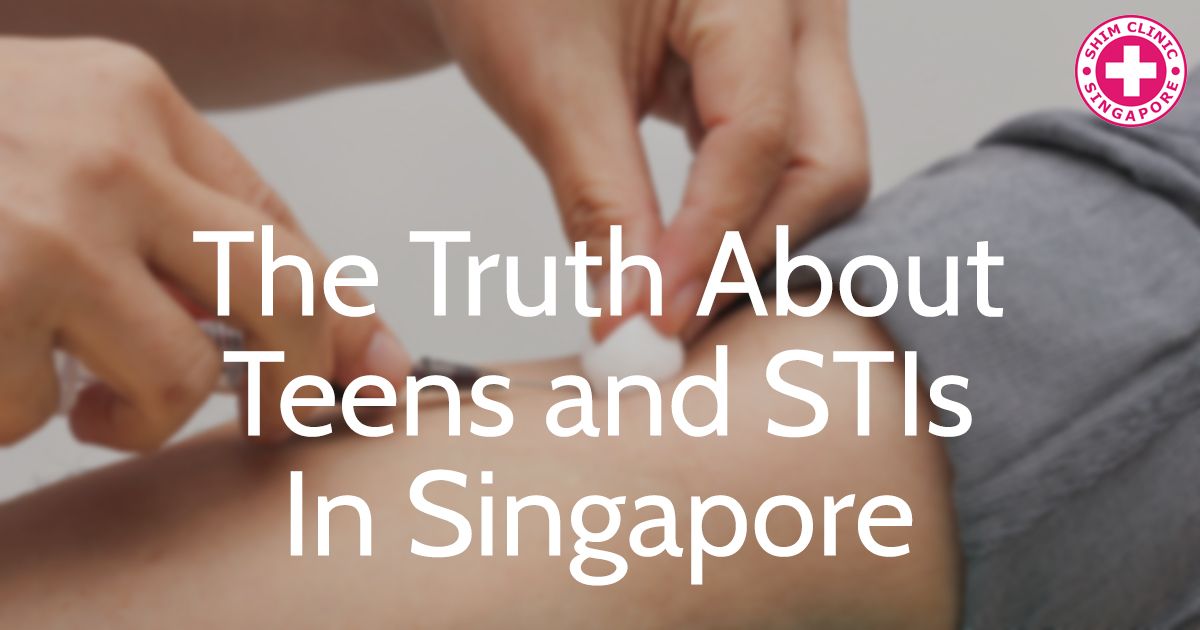Sexually transmitted infections (STIs) affect more than one million people across the world every single day, according to the World Health Organization (WHO). Each year, the four most common conditions (chlamydia, gonorrhoea, syphilis and trichomoniasis) affect 357 million people.
Due to awareness programmes and preventative practices, there has been an STI rate decline in certain parts of the world. Singapore wasn’t an exception. It registered decreasing STD rates for seven consecutive years but the tide started turning in 2017.
STIs among Teens: An Alarming Trend
According to experts, the rate of STIs among teenagers and adolescents in Singapore has started going up.
Awareness about the best protective measures is there. Experts working with young individuals, however, claim that many teens simply choose to forgo the use of reliable contraception methods like condoms.
Apart from an increasing rate of sexually transmitted infections, experts have also noted a bigger number of teens commencing their sex life at an early age or engaging in promiscuous behaviours and having multiple partners.
The latest figures show that in a single year, 421 teens aged 10 to 19 contracted a sexually transmitted disease in Singapore. This is one of the highest numbers since a peak of infections was reached in 2007 (there were 820 adolescents who came forward for STI testing and treatment during the year).
Ever since, the decline was steady but a sudden reversal of trends is being observed. Researchers have also noticed a narrowing in the gap between Singaporean girls and boys contracting STIs.
Of all sexually transmitted infections, chlamydia is most common among adolescents. Gonorrhoea and genital warts come in second and third.
What Are the Reasons?
Teenagers and adolescents in Singapore have a good level of awareness about the risks of unprotected sex. They also know which forms of contraception are most reliable. The use of condoms, however, remains very low among younger Singaporeans.
While information is readily available, it’s not translating into sensible actions.
According to the Department of Sexually Transmitted Infections Control (DSC), a quarter of boys and 90 per cent girls questioned in a survey said that they don’t use condoms due to the lack of confidence that such barrier contraception will be utilised correctly.
Peer pressure to engage in sex without thinking about protection or the consequences is another very important risk factor that parents and teachers will have to address.
Finally, there’s a mistaken belief among teens that they’re way too young to contract an STI. In some instances, sexually transmitted diseases are perceived as an adult thing that cannot happen to someone in the 15 to 19 age range, for example.
Since many STIs do not exhibit symptoms for months and even years at a time, teens may discover the infection only after going to the doctor for another reason. If these teenagers engage in intercourse with multiple partners, they spread the disease before adequate measures are undertaken.
Changing Mindsets and Parental Involvement
It’s very important for parents to have open and honest conversations with their children about sex, pregnancy and STIs. De-stigmatising sex and discussing personal responsibilities are both essential to encourage healthy and mature behaviours among young individuals.
Having the talk can be difficult. Sex was a taboo subject back in the 1970s and 1980s. Hence, many of the people who are parents today never had the talk with their parents. They don’t really know how to approach the issue with their own kids, regardless of the availability of so many resources.
Organisations like AWARE have campaigns and hotlines both parents and teens can use to get their most crucial questions answered.
Parents are also responsible for addressing many of the silly misconceptions that teens believe in – misconceptions that can be dangerous and life-altering.
Both parents and adolescents can visit specialised STD clinics like Shim Clinic where they can get more information about common STIs, prevention, contraception, testing and treatment options. Emergency contraception and thorough consultation services are also available to those in need.
More information about STIs and STI prevention is available on the Shim Clinic official website. For specific questions, call (+65) 6446-7446.

